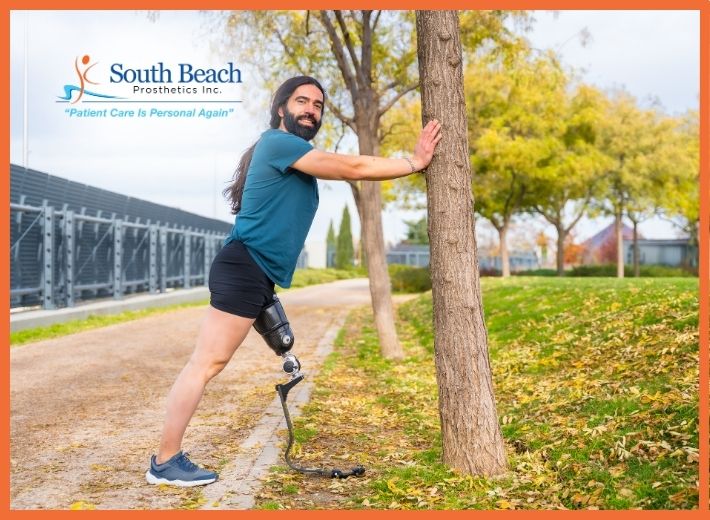In the realm of prosthetics, denial can cast a powerful influence over the course of one’s journey toward enhanced mobility and self-assurance. This discussion delves deep into the psychological dimensions of denial, shedding light on the intricate landscape of emotions, resilience, and transformation.
At some point in life, everyone experiences denial, a natural response when you’re unable or unwilling to face the facts. Denial is not always a bad thing. But it might be easier to recognize in others than in yourself.
“It’s hard to look at your own life and take a good inventory of what’s going on. It takes a lot of work,” says Jonathan Scholl, a therapist and clinical social worker at Harvard-affiliated McLean Hospital.
Here’s a little insight about denial, how to spot it in yourself and others, and what you might want to do about it.
What is denial?
In psychological terms, denial is a defense mechanism, a skillful tool the mind can employ when things get tough. “I see it as a protective barrier we have that we might or might not be aware of,” Scholl says. “It keeps us safe. It also keeps us from looking at ourselves or addressing something around us and making a change.”
You can be in denial about something you’re not ready to admit or take on, or something that challenges deeply held beliefs.
Common triggers for denial can involve
- abuse (mental, emotional, physical, verbal, sexual, financial, or other types of abuse)
- alcohol in excess or other substance use, or substance use disorder
- lifestyle or family issues
- medical diagnoses
- mental health issues
- politics
- smoking
- unhealthy weight gain.
How does denial help us?
Denial can shield us from difficult emotions. Scholl says that might be helpful in the short term, and provide relief to people who don’t have the bandwidth or ability to face a problem.
For example, maybe someone is unhappy in a relationship, but the thought of being alone is worse than the thought of being together. Or perhaps someone is burned out or overwhelmed, and lacks the energy or emotional capability for accepting what’s happening. “Part of the person feels it’s easier not to think about the situation, and lets it go because it feels like it’s too much to handle right now,” Scholl says.
How can denial hurt us?
In dangerous or unhealthy situations, denial can hurt us.
For example, keeping our eyes shut about the realities of a physical or mental illness can lead to serious health consequences. “We see a lot of teens with depression and substance use disorders, and some parents deny there are problems because they’re afraid of what it means for the child. It comes from a place of worry,” Scholl says. “But denying problems can hurt children and block them from making meaningful change.”
Denial can also hurt when it involves addiction or abuse. Those problems affect everyone in a family, and can lead to unhealthy patterns that get passed down from one generation to the next.
Spotting behavior patterns that suggest denial
People in denial often exhibit certain behaviors. For example, they might
- minimize or justify problems, issues, or unhealthy behaviors
- avoid thinking about problems
- avoid taking responsibility for unhealthy behaviors, or blame them on someone else
- refuse to talk about certain issues, and get defensive when the subjects are brought up.
Moving from denial toward meaningful change
Dealing with denial means first recognizing that it’s occurring — which can be a challenge for anyone — and then addressing the underlying issue that’s causing it.
If you recognize denial in yourself, Scholl advises that you reach out for help. Talk to someone close to you or get an outside opinion from a therapist, a spiritual counselor, your doctor, or a hotline number, such as the National Domestic Violence Hotline if you’re experiencing intimate partner violence. For addiction problems, make that first call to a substance use disorder hotline or recovery center, or try attending just one meeting of a 12-step program (such as Alcoholics Anonymous). In time, you can learn to face your fears or concerns, and develop a concrete plan to change.
Recognizing denial in others: Tread carefully
If you recognize denial in others and you’d like to point it out, tread very carefully. Seek guidance from experts before taking on a situation that could be dangerous to you or to the other person.
If the situation is not dangerous, be as compassionate as possible. “Have a warm and empathetic conversation in an environment without distractions,” Scholl says. “Express your love and point out what you’re seeing. Talk about how it affects you. And then give it time. You can’t force anyone to change. All you can do is plant a seed.”
Reach out to South Beach Prosthetics Services and embark on a path of self-discovery, awareness, and empowerment. Take the first step towards a future where your prosthetic experience becomes a catalyst for growth and empowerment. Remember — we can come to you with in-home care, but also help you to get out of the house for your appointments and your education on managing your new prosthesis: We can pick you up at no cost and bring you back. You can have peace of mind with our VIP care, ensuring you get what you need for your whole-health journey. Contact us today at (888) 819-4721. Follow us on Instagram @SouthBeachOP for more tips on prosthetic care.
Reference: [https://www.health.harvard.edu/blog/denial-how-it-hurts-how-it-helps-and-how-to-cope-202307262958]





